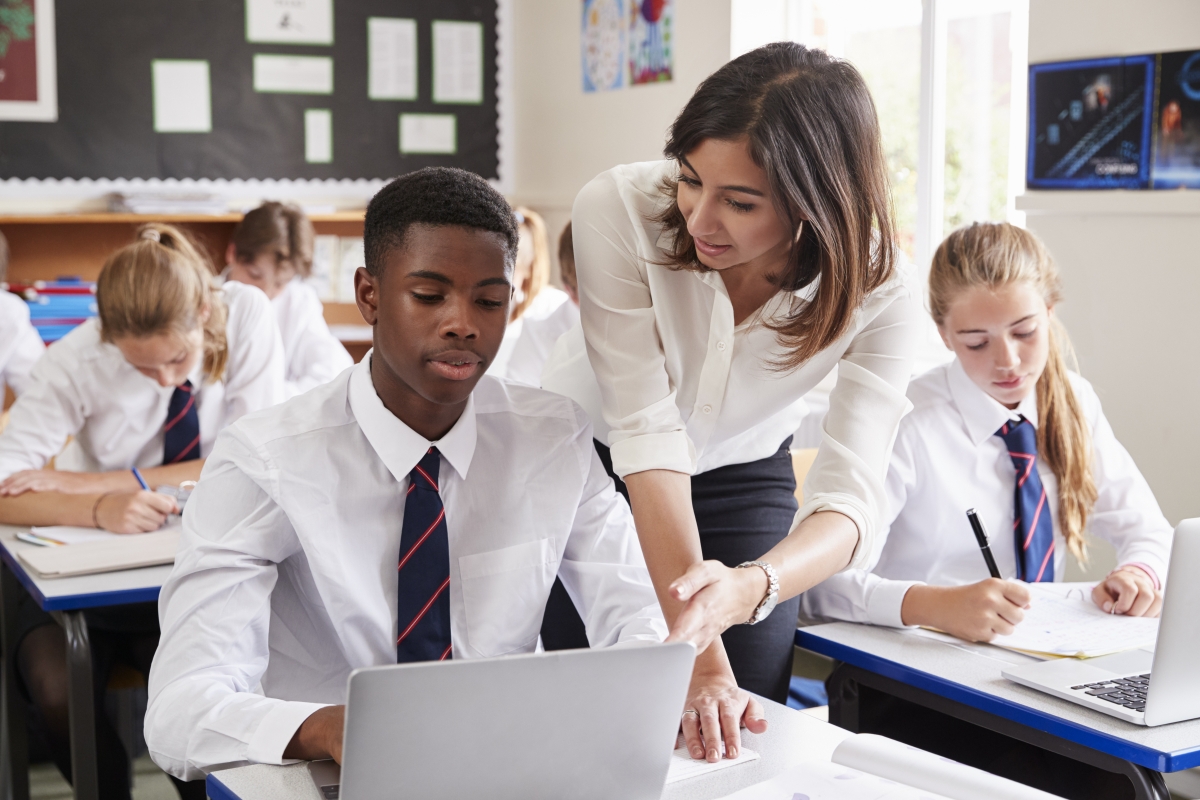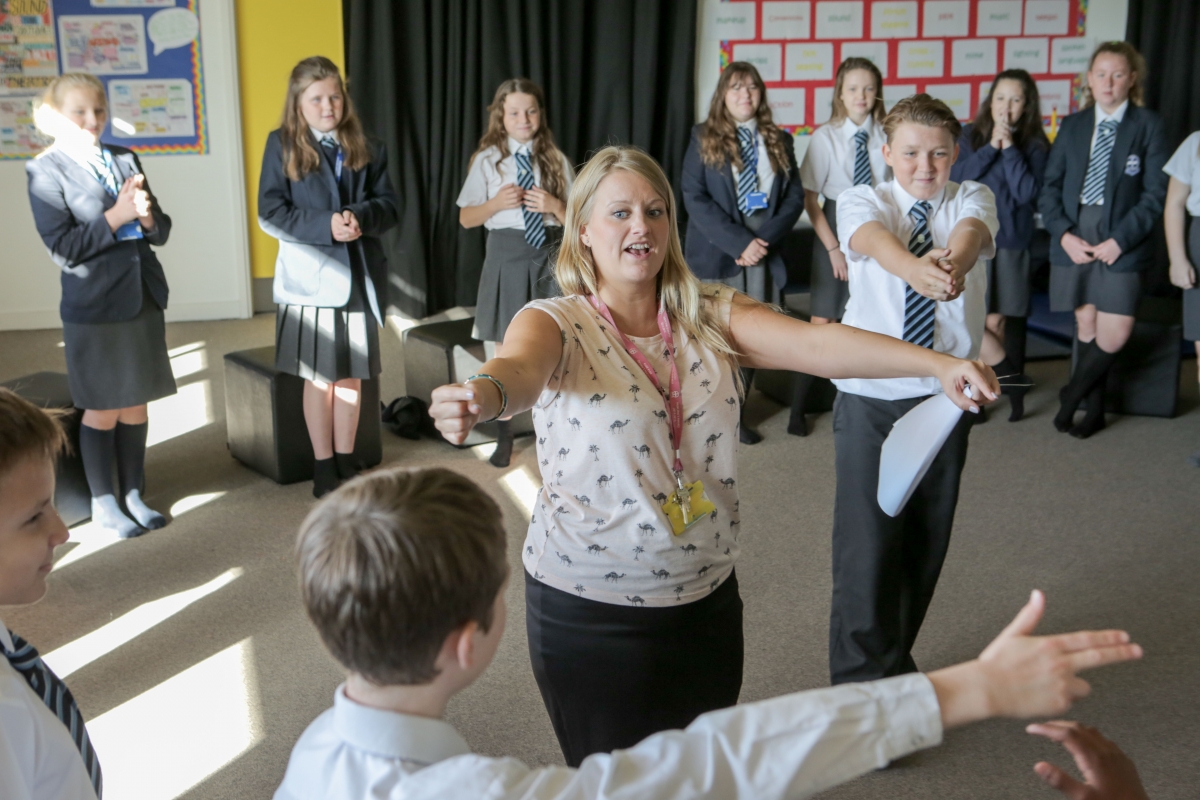The new Relationships and Sex Education (RSE) and Health Education curriculum will be compulsory from September 2020. The Department for Education has said that schools should start teaching from that date if they meet the statutory requirements. If they are not ready, or are unable to meet the requirements, they should begin teaching by at least the start of the summer term 2021. This page outlines the requirements relating to bullying under this guidance linked at the bottom of this page.
Read the government statutory guidance here.
During the passage of the Children and Social Work Act in 2017, the government recognised that there was a compelling case to make Relationships Education and Relationships and Sex Education (RSE) compulsory through regulations. After consultation it also made Health Education statutory. The guidance in the links section below is statutory guidance and outlines the new curriculum. September 2020 sees the introduction of compulsory relationships education for primary-age pupils and compulsory relationships and sex education (RSE) for secondary-age pupils, and compulsory health education for all pupils in state-funded schools.
We have outlined below the requirements relating to bullying under the new RSHE curriculum below.

Primary
Relationships Education - Primary
The guidance sets out categories under Relationships Education and states what pupils should know by the end of primary school. We have outlined below the elements of each that are pertinent to bullying and online bullying:
Caring friendships
- how important friendships are in making us feel happy and secure, and how people choose and make friends.
- the characteristics of friendships, including mutual respect, truthfulness, trustworthiness, loyalty, kindness, generosity, trust, sharing interests and experiences and support with problems and difficulties.
- that healthy friendships are positive and welcoming towards others, and do not make others feel lonely or excluded.
- that most friendships have ups and downs, and that these can often be worked through so that the friendship is repaired or even strengthened, and that resorting to violence is never right.
- how to recognise who to trust and who not to trust, how to judge when a friendship is making them feel unhappy or uncomfortable, managing conflict, how to manage these situations and how to seek help or advice from others, if needed.
Respectful relationships
- the importance of respecting others, even when they are very different from them (for example, physically, in character, personality or backgrounds), or make different choices or have different preferences or beliefs.
- practical steps they can take in a range of different contexts to improve or support respectful relationships
- about different types of bullying (including cyberbullying), the impact of bullying, responsibilities of bystanders (primarily reporting bullying to an adult) and how to get help.
- what a stereotype is, and how stereotypes can be unfair, negative or destructive.
- the importance of permission-seeking and giving in relationships with friends, peers and adults.
Online safety
- that people sometimes behave differently online, including by pretending to be someone they are not.
- that the same principles apply to online relationships as to face-toface relationships, including the importance of respect for others online including when we are anonymous.
- the rules and principles for keeping safe online, how to recognise risks, harmful content and contact, and how to report them.
- how to critically consider their online friendships and sources of information including awareness of the risks associated with people they have never met.
Health Education - Primary
Under Health Education it also states that by the end of primary education:
- isolation and loneliness can affect children and that it is very important for children to discuss their feelings with an adult and seek support.
- that bullying (including cyberbullying) has a negative and often lasting impact on mental wellbeing.
- where and how to seek support (including recognising the triggers for seeking support), including whom in school they should speak to if they are worried about their own or someone else’s mental wellbeing or ability to control their emotions (including issues arising online).

Secondary
Relationships Education - Secondary
The aim of RSE is to give young people the information they need to help them develop healthy, nurturing relationships of all kinds, not just intimate relationships. It should enable them to know what a healthy relationship looks like and what makes a good friend, a good colleague and a successful marriage or other types of committed relationships. The guidance sets out categories under Relationships Education and states what pupils should know by the end of secondary school. We have outlined below the elements of each that are pertinent to bullying and online bullying:
Respectful relationships, including friendships
- the characteristics of positive and healthy friendships (in all contexts, including online) including: trust, respect, honesty, kindness, generosity, boundaries, privacy, consent and the management of conflict, reconciliation and ending relationships. This includes different (non-sexual) types of relationship.
- practical steps they can take in a range of different contexts to improve or support respectful relationships.
- how stereotypes, in particular stereotypes based on sex, gender, race, religion, sexual orientation or disability, can cause damage (e.g. how they might normalise non-consensual behaviour or encourage prejudice).
- that in school and in wider society they can expect to be treated with respect by others, and that in turn they should show due respect to others, including people in positions of authority and due tolerance of other people’s beliefs.
- about different types of bullying (including cyberbullying), the impact of bullying, responsibilities of bystanders to report bullying and how and where to get help.
- that some types of behaviour within relationships are criminal, including violent behaviour and coercive control.
- what constitutes sexual harassment and sexual violence and why these are always unacceptable.
- the legal rights and responsibilities regarding equality (particularly with reference to the protected characteristics as defined in the Equality Act 2010) and that everyone is unique and equal.
Online and media
- about online risks, including that any material someone provides to another has the potential to be shared online and the difficulty of removing potentially compromising material placed online.
- not to provide material to others that they would not want shared further and not to share personal material which is sent to them.
- what to do and where to get support to report material or manage issues online.
Health Education - Secondary
Under Health Education it also states that by the end of primary education:
- how to critically evaluate when something they do or are involved in has a positive or negative effect on their own or others’ mental health.
- how to identify harmful behaviours online (including bullying, abuse or harassment) and how to report, or find support, if they have been affected by those behaviours.
Remember that a good quality anti-bullying curriculum alone without a whole school anti-bullying approach underpinned by good quality policies will not help address bullying.
You can access free anti-bullying CPD training for all your school staff here.

